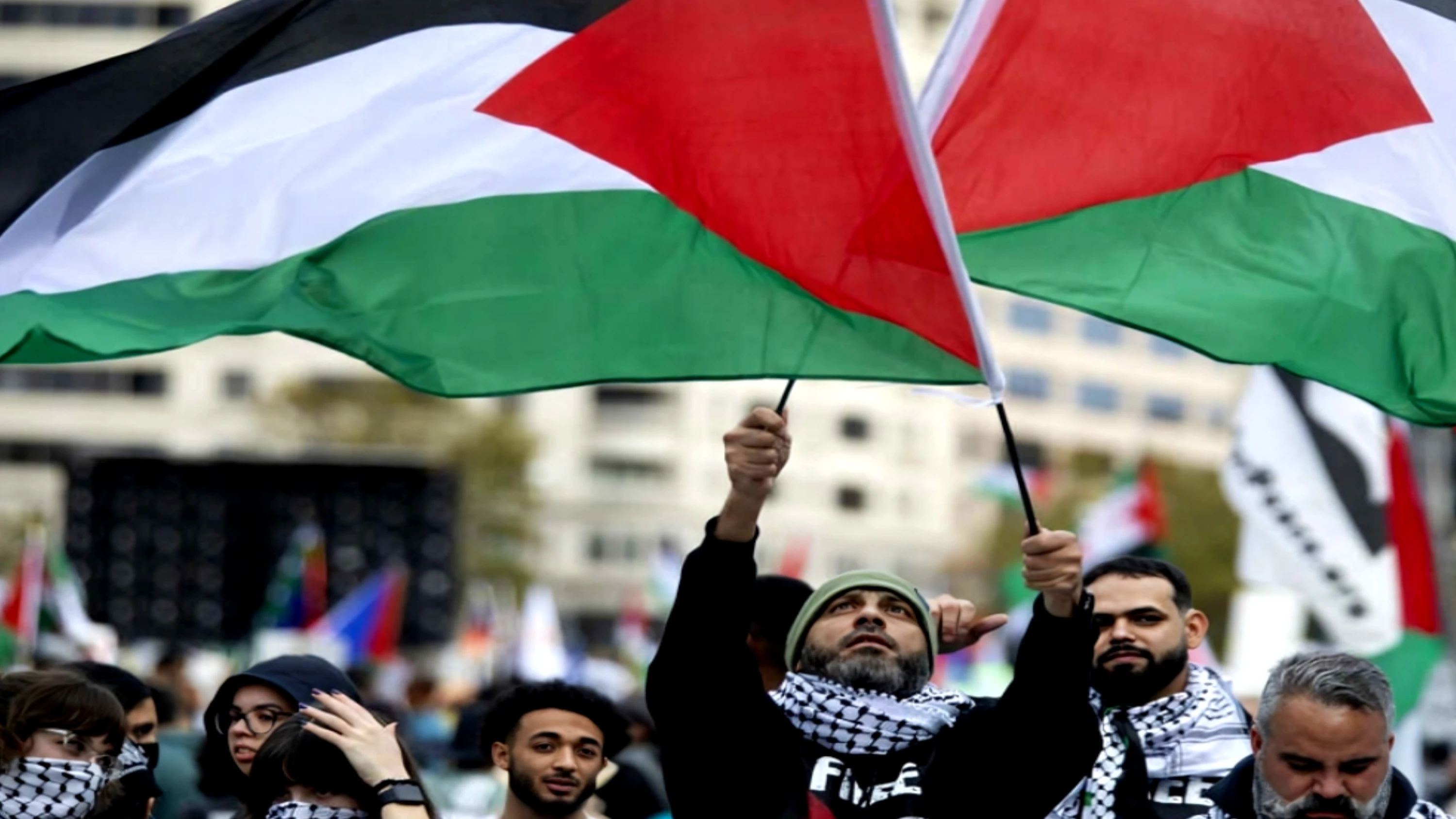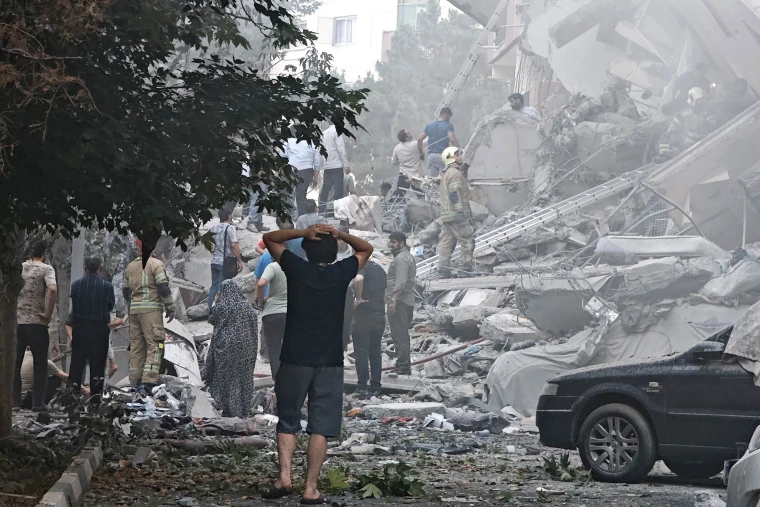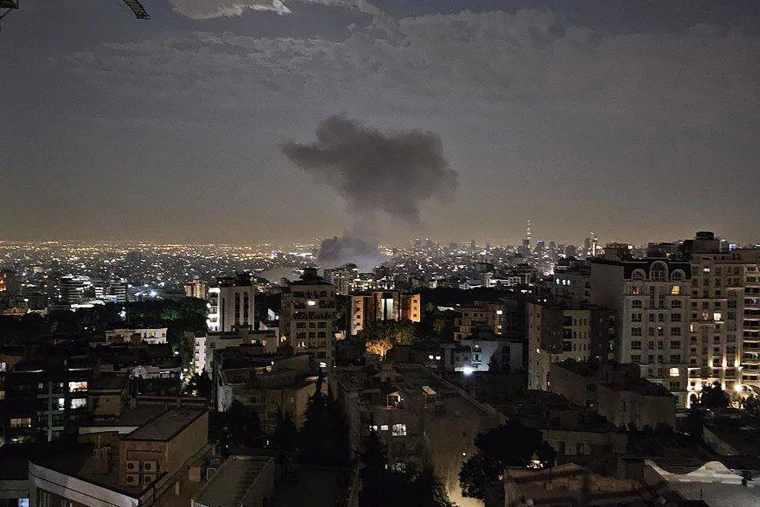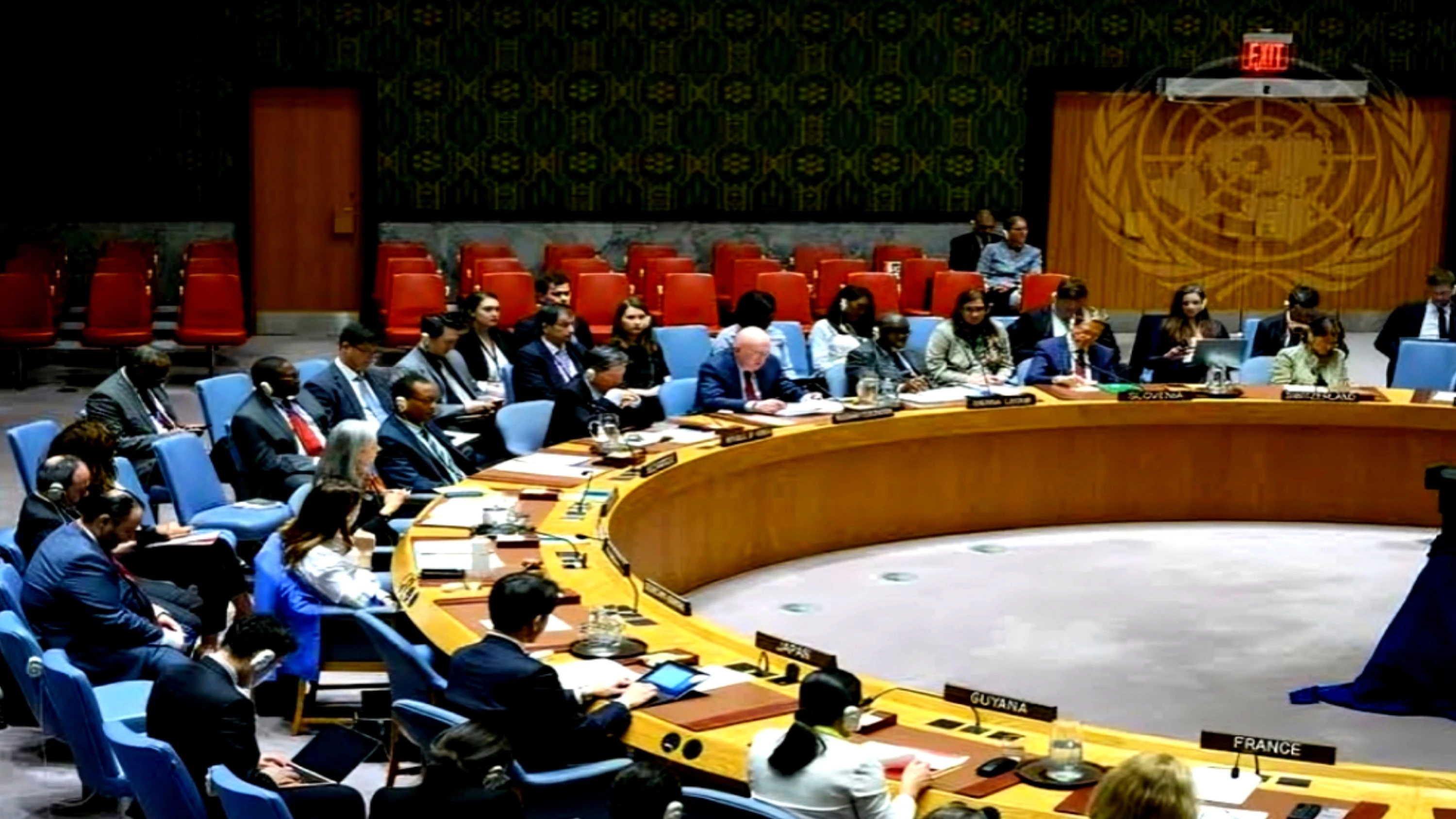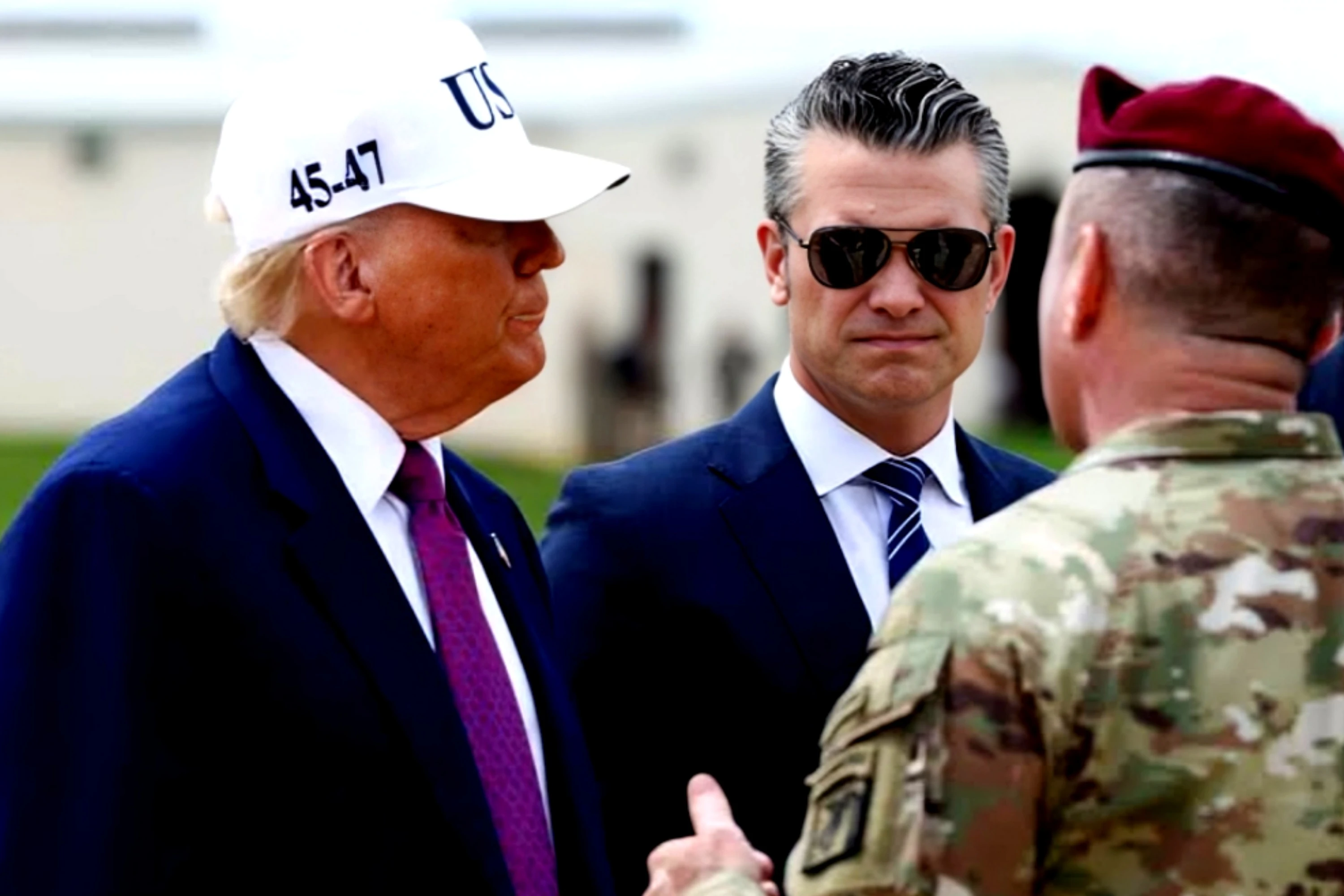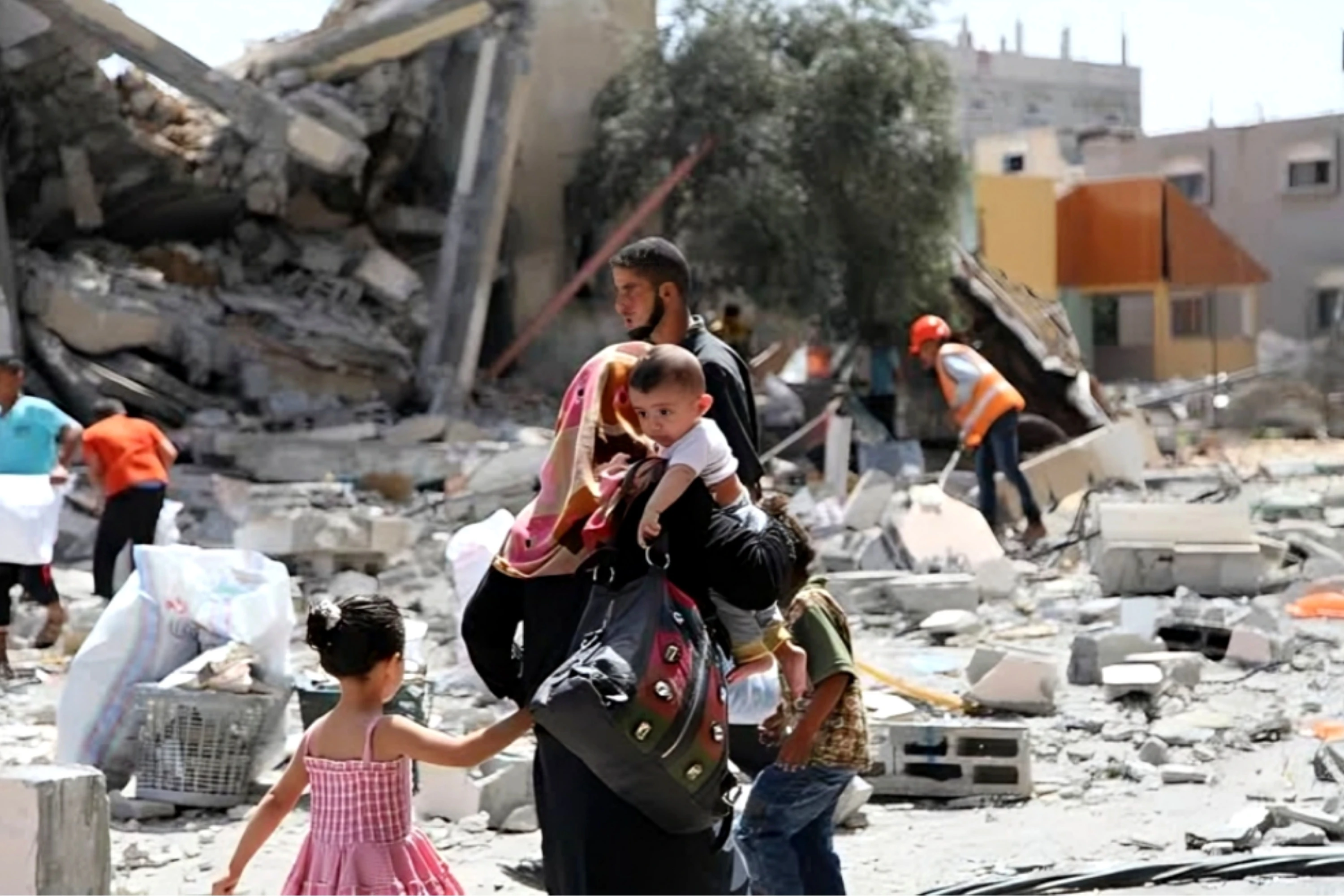Tunis: Thousands of activists from around the world are mobilizing in a historic land-based march toward the Gaza Strip, aiming to break the blockade imposed by Israel and spotlight what they describe as an ongoing genocide against Palestinians.
Approximately 1,000 participants in the Tunisian-led leg of the initiative, known as the Sumud Convoy, arrived in western Libya on Tuesday after departing the Tunisian capital, Tunis. After a long day of travel, the group is resting while awaiting clearance to pass through Libya’s eastern region, which is controlled by a rival political faction.
The convoy — consisting mainly of people from the Maghreb region — is expected to swell in numbers as it progresses, with more participants set to join from the countries it traverses. Their destination is the Rafah border crossing between Egypt and Gaza.
Organized by the Coordination of Joint Action for Palestine and aligned with the Global March for Palestine, the Sumud Convoy is composed of nine buses carrying approximately 1,000 activists. Their goal is to galvanize international pressure on political leaders to intervene in the humanitarian catastrophe unfolding in Gaza.
The campaign is backed by prominent Tunisian civil society organizations, including the General Labour Union, the National Bar Association, the Tunisian League for Human Rights, and the Tunisian Forum for Economic and Social Rights.
In coordination with activists from more than 50 countries, hundreds more are expected to fly into Cairo on June 12, joining the Sumud Convoy for the final stretch to Rafah. This includes members of groups such as the Palestinian Youth Movement, Codepink (U.S.), and Jewish Voice for Labour (UK).
Tunisian journalist Ghaya Ben Mbarek, who joined the convoy just before it entered Libya, said the mood among participants is one of “courage and anger” in response to the catastrophe in Gaza. “As a journalist, I feel a moral obligation to stand on the right side of history — to help stop a genocide,” she told reporters.
Once the convoy arrives in Cairo, the plan is to head to El Arish in Egypt’s Sinai Peninsula and begin a three-day march toward the Rafah crossing. However, this leg of the journey remains uncertain. Eastern Libya has yet to approve the group’s passage, and Egypt has yet to make a statement regarding the activists’ plans. The Egyptian government tightly controls access to the military zone near Rafah and typically restricts entry to local residents.
A veteran Egyptian activist, speaking anonymously for safety reasons, expressed skepticism about the group being allowed to proceed. “The government always prioritizes national security,” they said.
Even if the convoy reaches Rafah, it will likely face obstruction from Israeli forces, who control the crossing and have long resisted outside pressure.
This initiative is part of a broader, years-long movement to challenge the Israeli blockade of Gaza. Activists have previously launched maritime missions to deliver aid, many of which were intercepted or attacked by Israeli forces. In one of the most notorious incidents in 2010, Israeli commandos boarded the Mavi Marmara in international waters, killing nine activists.
Most recently, 12 members of the Freedom Flotilla Coalition set sail from Italy aboard the Madleen on June 1 to deliver humanitarian aid. They were intercepted and detained by Israeli forces in international waters on June 9.
Despite the near certainty that they will be stopped before entering Gaza, Sumud participants insist on pressing forward. “If you stop us by sea or by air, then we’ll come by land — by the thousands,” said Ben Mbarek. “We will cross deserts if we have to, to stop people from dying of hunger.”
Since Israel launched its full-scale war on Gaza on October 7, 2023, the territory has faced extreme deprivation. Israel’s blockade has created what experts call a deliberately engineered famine, with reports of thousands dead from starvation and many more at risk.
According to local health authorities, over 54,927 people have been killed and more than 126,000 injured in Israeli attacks since the war began. International legal experts argue the scale and intent of this campaign meet the criteria for genocide under international law.
Israel’s intensified siege since March has nearly halted humanitarian aid and led to fatal attacks on civilians waiting in food lines — provoking rare criticism from some Western governments.
Through the Sumud Convoy and the Global March, activists hope to disrupt the global status quo and demand an end to what they describe as one of the most brutal and protracted acts of mass violence in modern history.


